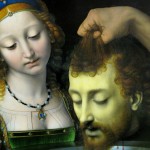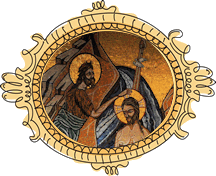 In a previous entry, we ended on the question of whether a denomination that includes many Protestant streams that see baptism as either a sign of incorporation into a covenant community or as sign of previous regeneration can honestly claim baptism is a sacrament within its bylaws.
In a previous entry, we ended on the question of whether a denomination that includes many Protestant streams that see baptism as either a sign of incorporation into a covenant community or as sign of previous regeneration can honestly claim baptism is a sacrament within its bylaws.
The gulf between views of baptism as imparting a gift from God (sacramental) and outward sign of covenant community (Zwingli, Congregationalist) or a sign pointing to an inward act of faith that has already transpired (Baptist, Anabaptist, Pentecostal/Charismatic) becomes even broader when we begin to discuss the ontological meaning of baptism.
Continue reading "Baptism as Sacrament – Part II – Ontological Change?"
 Since the time of Constantine, baptism has often been one of the strands holding together the knot of national identity and Christendom.
Since the time of Constantine, baptism has often been one of the strands holding together the knot of national identity and Christendom. In my
In my
